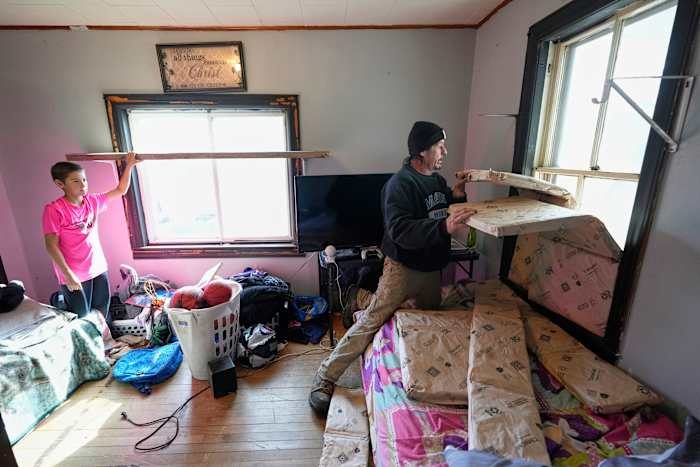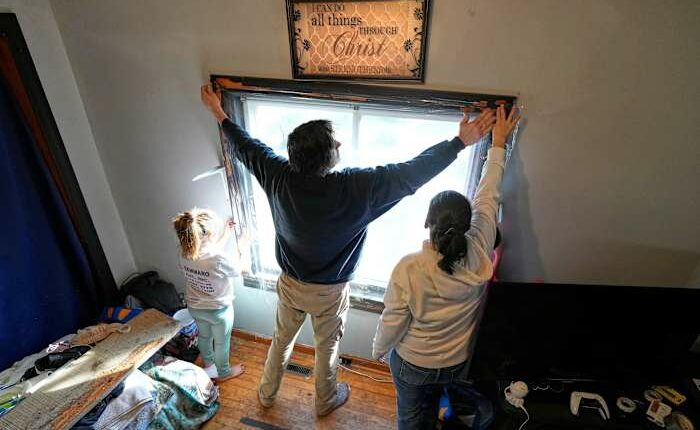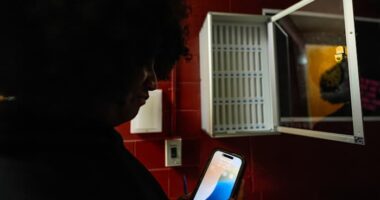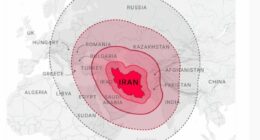Share this @internewscast.com

BAILEYVILLE, Maine – For Gerard Berry, setting the thermostat to a cool 60 degrees was manageable even during Maine’s notoriously cold winters. However, after being diagnosed with stomach cancer, he found it increasingly difficult to stay warm as he lost weight.
“I used to tell the kids to just put on a sweatshirt,” Berry, 47, remarked. “But after falling ill, I became so thin that we had to significantly raise the thermostat. We ended up using much more fuel last year than ever before.”
Last winter, Berry’s family of seven received assistance with refilling their oil tank. Currently, officials in Maine and other states are in a quandary over how to proceed amid the federal government shutdown.
An emergency aid initiative, usually starting on November 1 to support 7,000 Maine families annually, is currently stalled. In response, MaineHousing is redirecting $2.2 million initially set aside for weatherization to provide preliminary payments for about 4,000 households who applied early for the broader Low-Income Home Energy Assistance Program.
While diverting funds from one project to another is not the perfect solution, Dan Brennan, the director of the quasi-state agency, noted that it “will get the trucks rolling.” Within the coming weeks, those who applied in August and September will see funds added to their accounts with fuel suppliers.
“This initiative aims to avert heating crises for our most vulnerable neighbors, family members, and friends,” Brennan added.
Commonly called LIHEAP, the $4.1 billion program helps 5.9 million households nationwide heat and cool their homes. While the uncertainty over its future is raising concerns across the country, New England officials are particularly concerned given the region’s reliance on oil for heat. Electric and natural gas companies generally are barred from pulling the plug, but more than half of Maine households rely on oil.
In Baileyville, a small town near the Canadian border, Berry puts plastic over his windows and blankets under the door to block the wind. In addition to the emergency assistance, he has benefited from a fuel donation program in Hancock and Washington counties known as “The Heating and Warmth Fund,” or THAW. His church community also supported him through his illness, which included a severe lung infection, sepsis and surgery to remove part of his stomach and colon.
“The thing about having faith is, you don’t have to worry. Like, God’s got me no matter what,” he said. “But I know that a lot of people are really freaking out. They’re really nervous, and it’s sad to me.”
Berry considers himself “very conservative” but said he thinks both Republicans and Democrats are being manipulative. His said his illness prompted him to focus less on Washington and more on his local community.
“Hopefully people are waking up, but hopefully they wake up in the right way,” he said. “Instead of waking up and being like, ‘Let’s start a revolution!’ Let’s wake up and let’s go shake hands with our neighbors.”
___
Ramer reported from Concord, New Hampshire.
Copyright 2025 The Associated Press. All rights reserved. This material may not be published, broadcast, rewritten or redistributed without permission.











